Types of Custom Application Development Tools
Custom application development generally involves various tools, each designed for a specific role in the development process:

A. Integrated Development Environments (IDEs)
Integrated Development Environments (IDEs) are robust software suites that bring together a variety of essential tools for coding, debugging, and testing applications. They streamline the development process by providing features such as code editing, syntax highlighting, error checking, and project management within a single interface. Some of the most popular IDEs include:
- Microsoft Visual Studio: Known for its versatility in developing Windows applications, web applications, and cloud-based solutions.
- Eclipse: A highly extensible, open-source IDE primarily designed for Java development but supporting a range of languages through plugins.
- JetBrains IntelliJ IDEA: Widely used for JVM languages like Java and Kotlin, offering advanced code assistance and productivity features.
B. Programming Languages and Frameworks
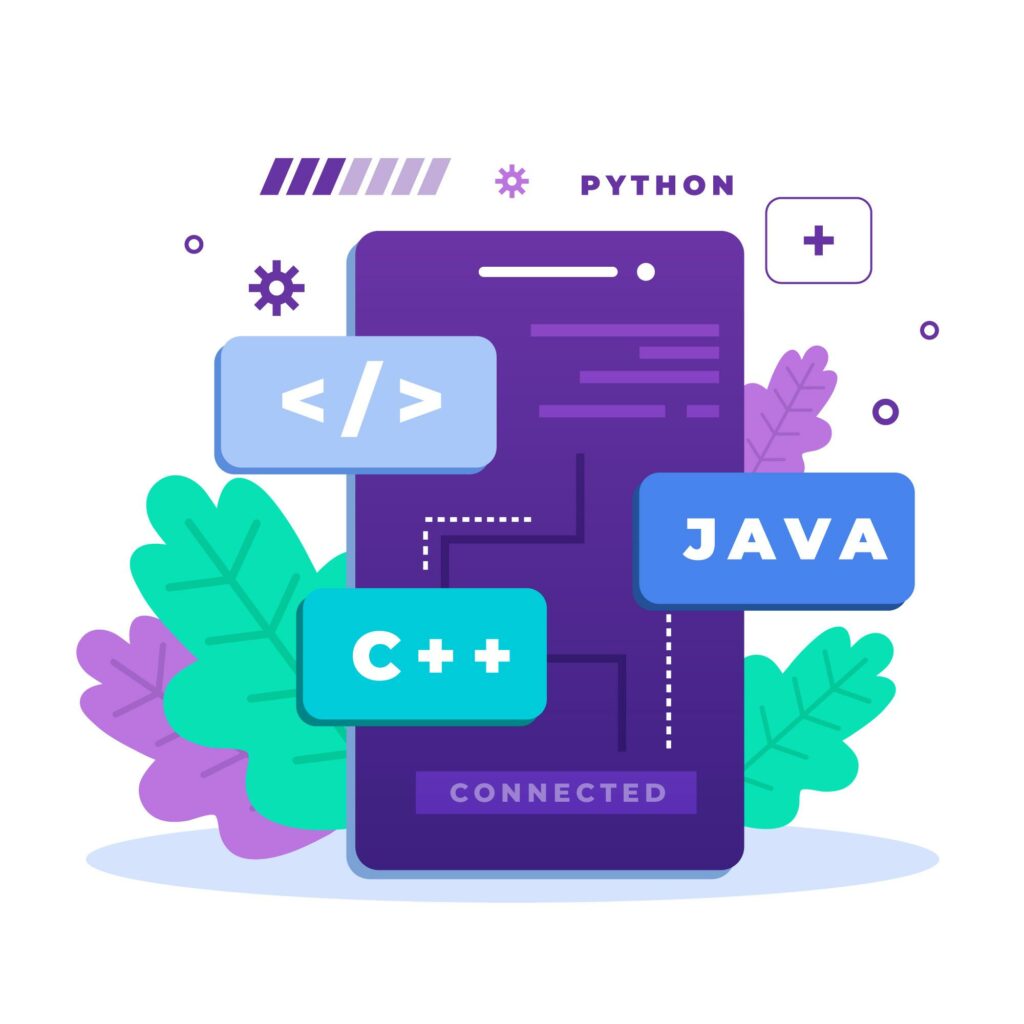
Programming Languages and Frameworks are critical in shaping custom app development, with language choices often depending on the target platform—whether for web, mobile, or desktop. Common languages include Java, known for its cross-platform compatibility; C#, which excels in Windows development; Python, a versatile option for both web and data-driven applications; JavaScript, essential for web interactivity; Swift, optimized for iOS development; and Kotlin, favored for Android.
Frameworks: Frameworks accelerate development by providing reusable components, libraries, and architectural guidance. Notable examples include:
- .NET: Ideal for building scalable Windows applications.
- Spring (Java): A preferred choice for enterprise-level Java solutions.
- React/Angular: Popular JavaScript frameworks for dynamic web applications.
C. Database Management Systems (DBMS)
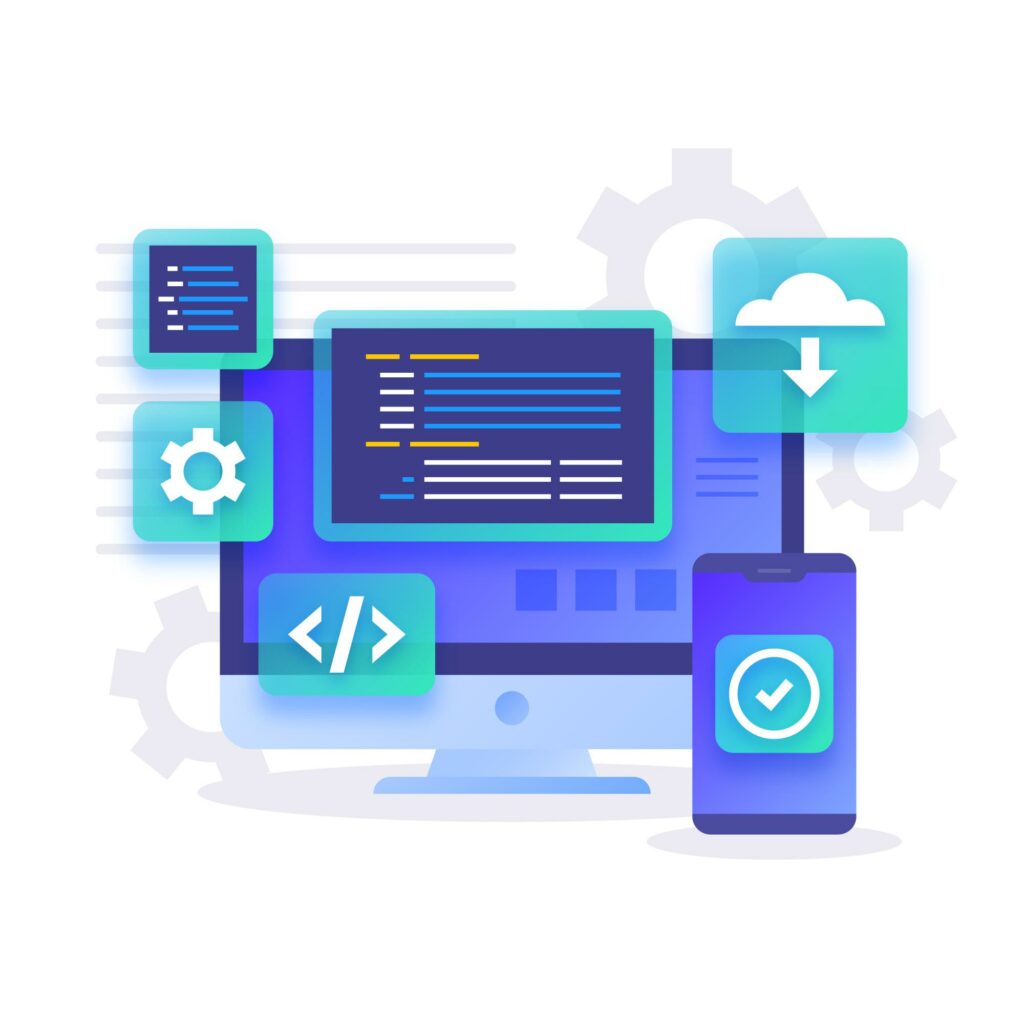
Database Management Systems (DBMS) are essential for custom applications that require efficient data storage, retrieval, and management. They provide structured environments for handling data, enabling seamless integration within applications. Common DBMS choices include:
- SQL-based DBMS: Relational databases like MySQL, PostgreSQL, and Microsoft SQL Server are popular for applications needing structured data and complex queries, as they support SQL for data management.
- NoSQL-based DBMS: Databases such as MongoDB and Cassandra are designed for applications needing flexibility, scalability, and the capacity to manage large volumes of unstructured or semi-structured data, making them ideal for dynamic, data-rich applications.
D. APIs and Middleware
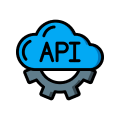
APIs and Middleware play a crucial role in enabling custom applications to interact seamlessly with other systems. They facilitate communication and data exchange between applications, enhancing functionality and integration. Key components include:
- REST APIs: Commonly used for internet-based communication, REST APIs allow applications to connect and perform operations using standard HTTP methods, ensuring simplicity and flexibility.
- GraphQL: This API query language enables precise data retrieval, allowing clients to request only the specific data they need, improving efficiency.
- Middleware: Middleware solutions like Apache Kafka and RabbitMQ serve as communication bridges between distributed systems, supporting real-time data transfer and reliable inter-application messaging.
E. Cloud Platforms

Cloud Platforms have transformed custom application development by offering scalable, secure, and streamlined deployment solutions. They provide infrastructure, tools, and services that make it easier to build, deploy, and manage applications on a global scale. Leading platforms include:
- Amazon Web Services (AWS): AWS offers a vast suite of cloud services for application development, including storage, computing, and database options, catering to a variety of needs.
- Microsoft Azure: Known for its Platform-as-a-Service (PaaS) capabilities, Azure supports developers in building, testing, and managing applications seamlessly.
- Google Cloud: Specializing in cloud-native development, Google Cloud provides scalable resources and effective management tools for deploying applications efficiently.
F. Version Control Systems
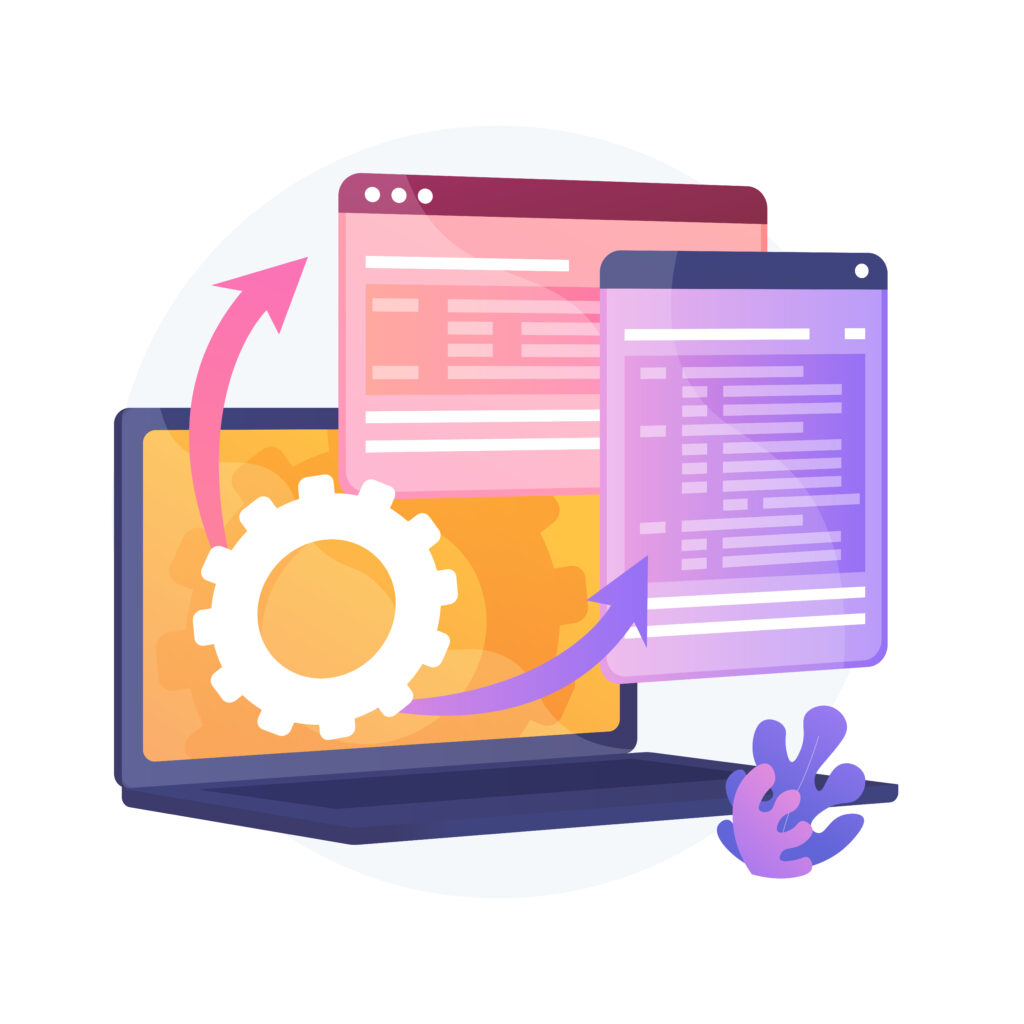
Version Control Systems are essential tools for managing code changes, enabling collaborative development, and maintaining a detailed record of modifications within a project. These systems help developers track versions, resolve conflicts, and revert to previous versions if needed, making them invaluable for teamwork and long-term project management. Key tools include:
- Git: A widely used, distributed version control system that allows developers to work simultaneously on code, merging updates seamlessly.
- GitHub, Bitbucket, and GitLab: These platforms provide cloud-based environments for Git repositories, adding features like issue tracking, pull requests, and team collaboration tools, fostering efficient project development.
G. Low-Code/No-Code Platforms
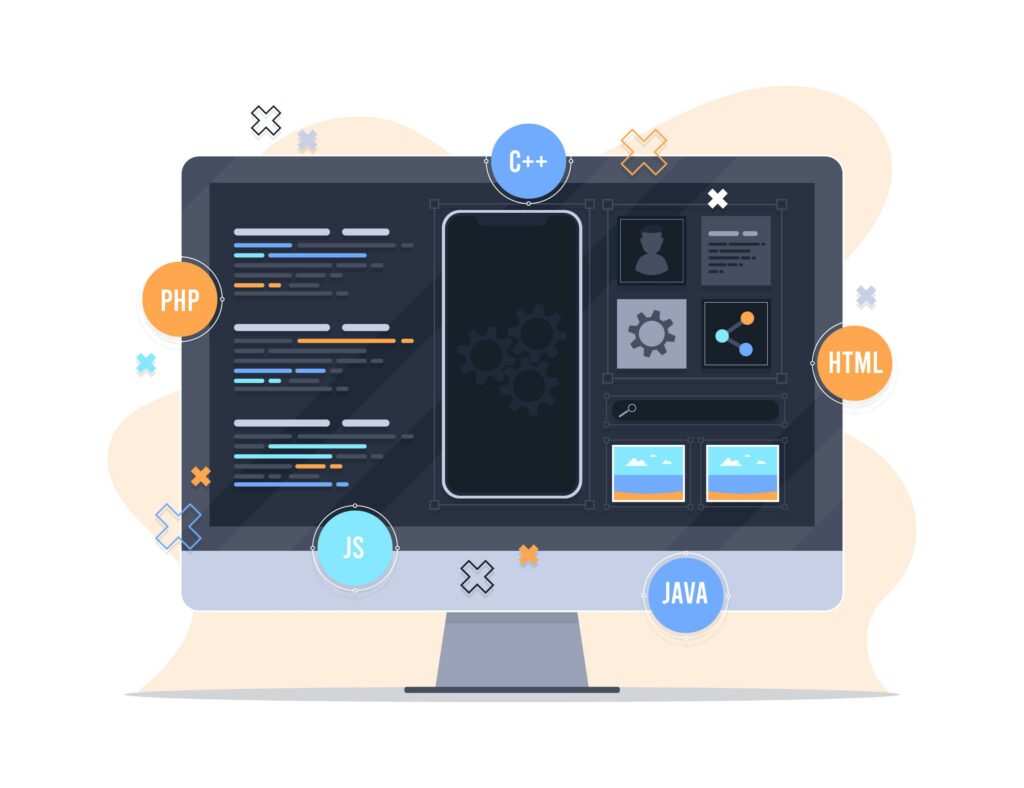
Low-Code/No-Code Platforms offer accessible solutions for users without extensive technical expertise, allowing them to create custom applications through intuitive interfaces and minimal coding. These platforms are particularly valuable for rapid prototyping and accelerating development processes, enabling teams to bring ideas to life swiftly. Key platforms include:
- OutSystems: Known for its enterprise capabilities, OutSystems allows quick development and deployment of business applications, combining low-code elements with scalability.
- Appian: Specializing in process automation, Appian simplifies complex workflows, making it ideal for automating business operations efficiently.
- Mendix: Designed for rapid application development, Mendix enables users to build robust applications with minimal code, supporting diverse use cases.
Factors to Consider When Choosing Tools
- Project Requirements: Assess the complexity, scalability, and performance needs of your application to ensure the tools you select can adequately support these aspects.
- Development Team Expertise: Take into account the skills and experience of your development team, as this will influence the types of tools they can effectively utilize.
- Tool Features and Capabilities: Evaluate the specific features provided by each tool and determine how well they align with your project objectives.
- Cost and Licensing: Consider the financial implications of the tools, including their costs and any licensing requirements that may apply.
- Community Support and Documentation: Look for tools that have active user communities and comprehensive documentation, as these resources can significantly aid in troubleshooting and maximizing tool usage.
Examples of Custom Application Development Tools in Action
- ERP Systems: Customized Enterprise Resource Planning systems are tailored for specific industries, such as manufacturing or healthcare, to streamline operations and improve efficiency.
- Customer Portals: These are bespoke portals designed to enhance customer service by offering personalized experiences and easy access to support or services.
- Mobile Apps: Tailored applications developed for specific functionalities, including employee management, order tracking, or on-demand services, catering to the unique needs of users.
[Want to learn more about custom application development tools? Click here to reach us.]
Conclusion
Custom application development tools are vital for organizations seeking tailored software solutions that meet unique needs. These tools offer flexibility, scalability, and functionality, allowing businesses to create applications that address specific operational challenges. With the rise of low-code and no-code platforms, non-technical users can contribute to development, reducing reliance on IT teams.
Bobcares enhances this process by providing expert custom application development support services, helping businesses identify requirements and implement effective strategies. In conclusion, investing in these tools and services is essential for improving operational efficiency and maintaining a competitive edge in a rapidly changing market.







0 Comments